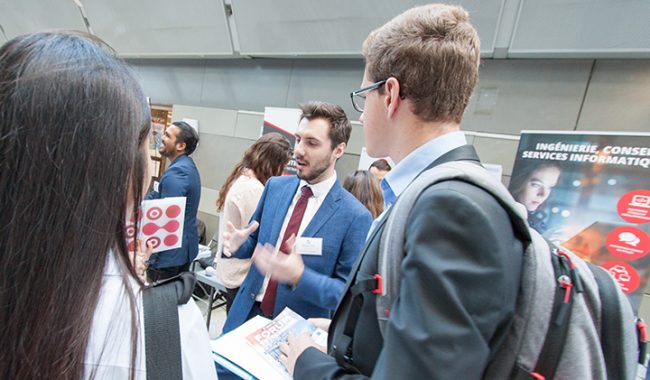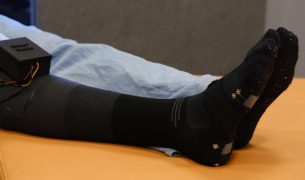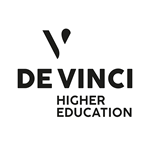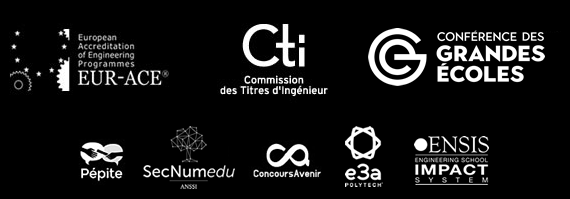Job fairs are a great opportuniy for internship or job seeking engineering students and making the right first impression is what matters most in a busy job fair. Regardless of which type of student personalities they can relate to, whether they are leaders, team players, bold, or shy; these next tips will make them memorable to recruiters.
Finalizing and summarizing the resume is important, but to be frank, a lot of engineering students tend to have similar technical and educational backgrounds, which means that by highlighting the soft skills and being unique in how they present themselves, students will gain an advantage during their quick interview.
The 1-Minute Pitch
At job fairs, students are expected to initiate the primary contact with recruiters or company representatives by introducing themselves quickly, passionately, and in an organized manner. With approximatively 1-3 minutes, the basics to include in any introductory pitch should be:
- Name
- Major and year in school or expected graduation
- Reasons behind picking this major
- Reasons for being interested in this particular company or job position
- Linking current studies to professional project
Additional tips:
Asking questions: having a genuine sense of curiosity and showing interest in what the company does and the kind of technical work the position requires especially in the engineering industry. Not only will it show recruiters that students did their research but will also show them that the students know what they want and they’re not afraid to chase it.
Soft skills and extracurriculars: highlighting distinctive and unique traits that are not necessarily common with others is perhaps one of the main assets applicants can possess. Whether they are active members of the engineering club or they’ve presented a project that flaunted both their project management or technical skills, they will be able to easily align these experiences and traits with the vacancy they are applying for.
Up Close and Personal
This has nothing to do with wasting anyone’s time by telling short stories. What is meant by getting up close and personal is being ready to talk about a personal project you’ve worked on in your major. It can range from a project that was memorable for its success or even challenges. By talking about hands-on projects, candidates will indirectly show their strengths, weaknesses, and opportunities for improvement. It will also give recruiters an idea about what the candidates learned from their projects, how they translated it into action, and some solo and team personality traits that were not prominent in the pitch. This may look surprisingly easy, but the opposite side of the spectrum can also happen:
Throughout their years of experience, many recruiters met young engineers and developers who were arrogant without having enough experience to backup this arrogance. Candidates don’t have to lack confidence but being confidently humble always makes a far better impression.
Body Language in Job Fairs
This one doesn’t require much experience, following one’s instinct should do the trick. Reading the recruiter’s body language in career fairs will hint to potential candidates if they need more or less information, and vice versa.
According Andrew Peterson, a job advisor at ResumesPlanet, anyone can recognize a person’s honesty by their smile and eye contact: “An honest smile can’t be controlled. When I notice that the person is smiling with their eyes and their entire body, I can tell they’ll fit into the organization just fine.”
By following these tips at the next job fair, candidates will have a better chance landing their next internships and who knows, maybe the job of their dreams.
Learn more about ESiLV’s career fairs.





















